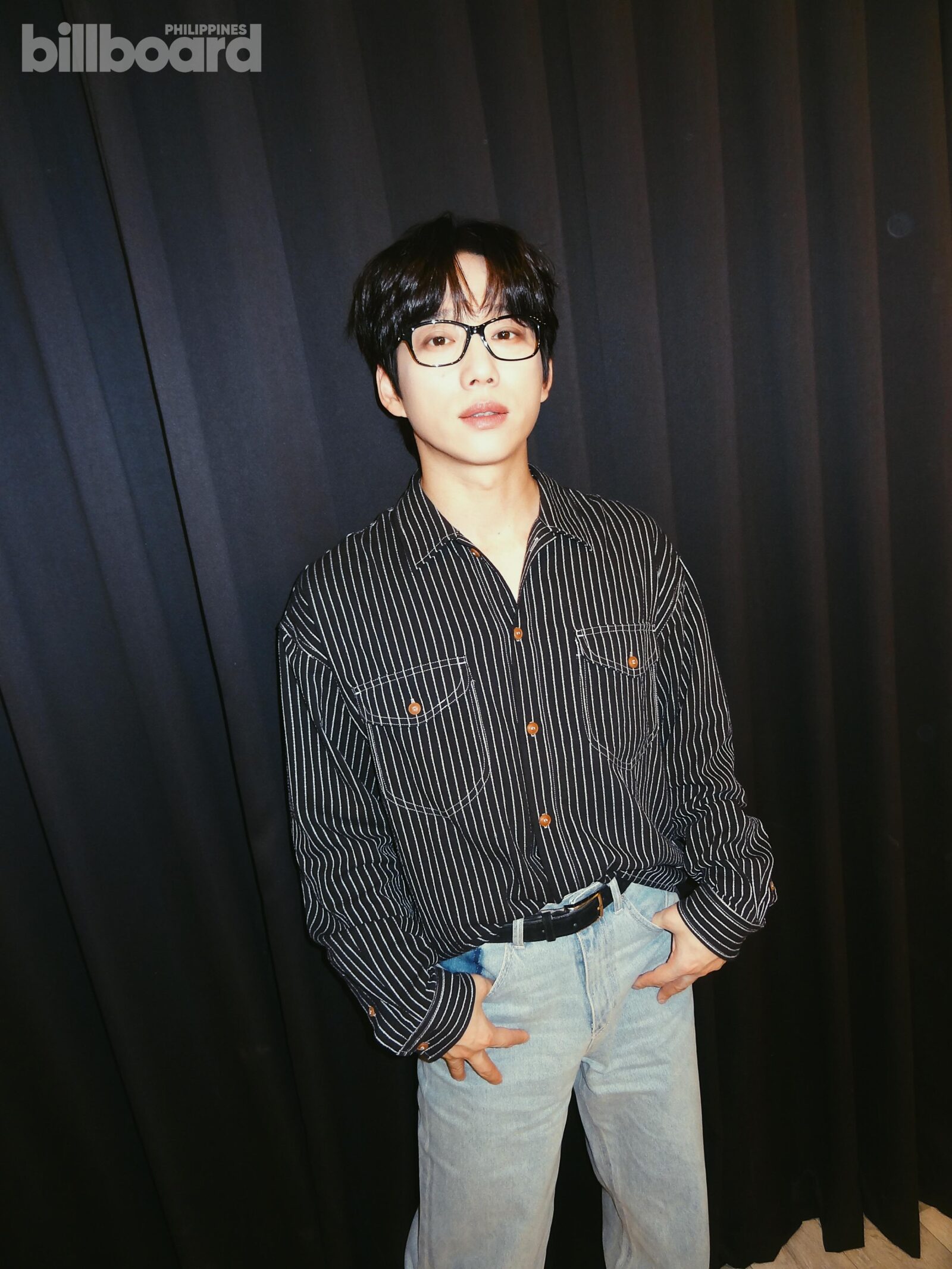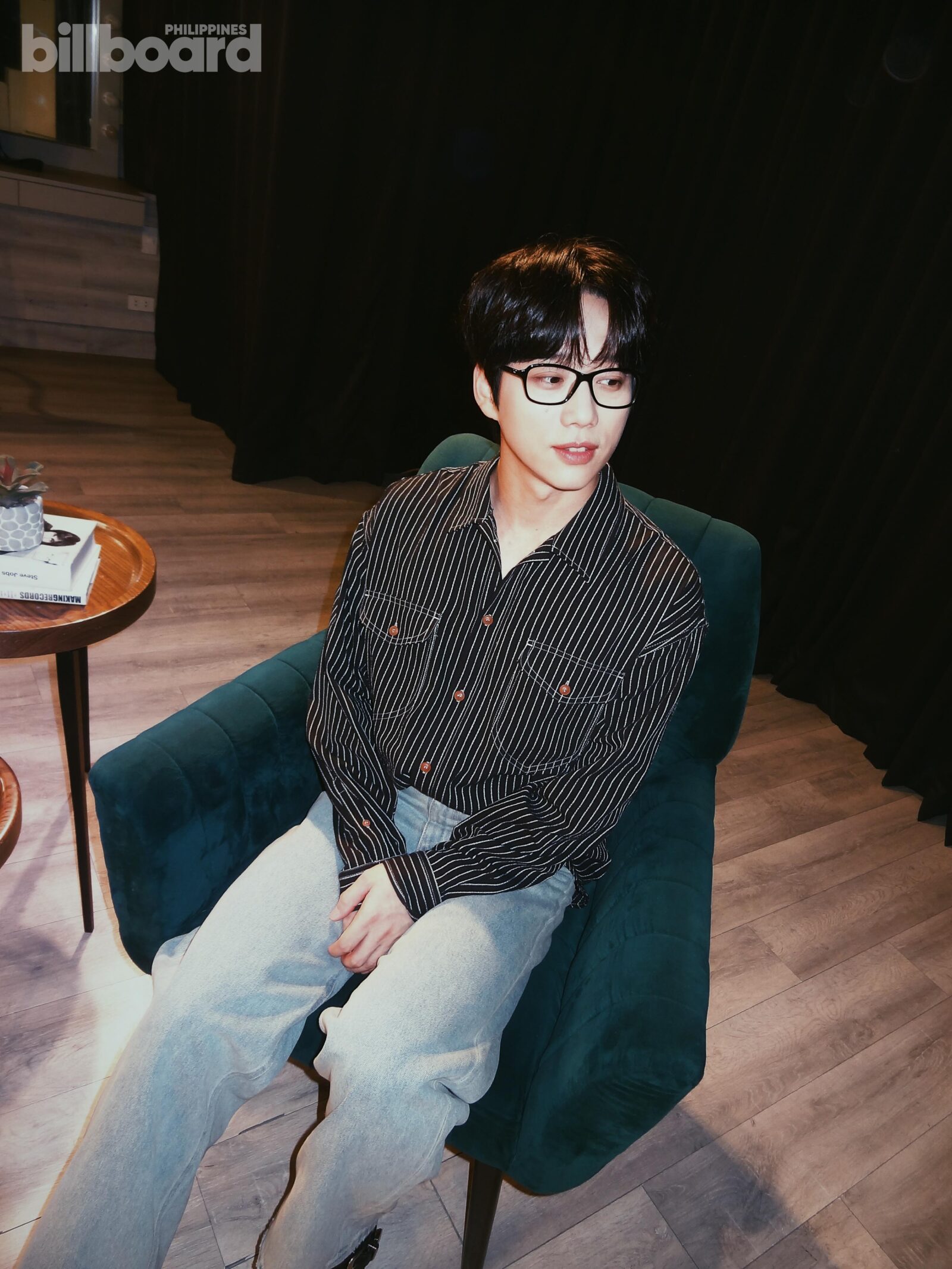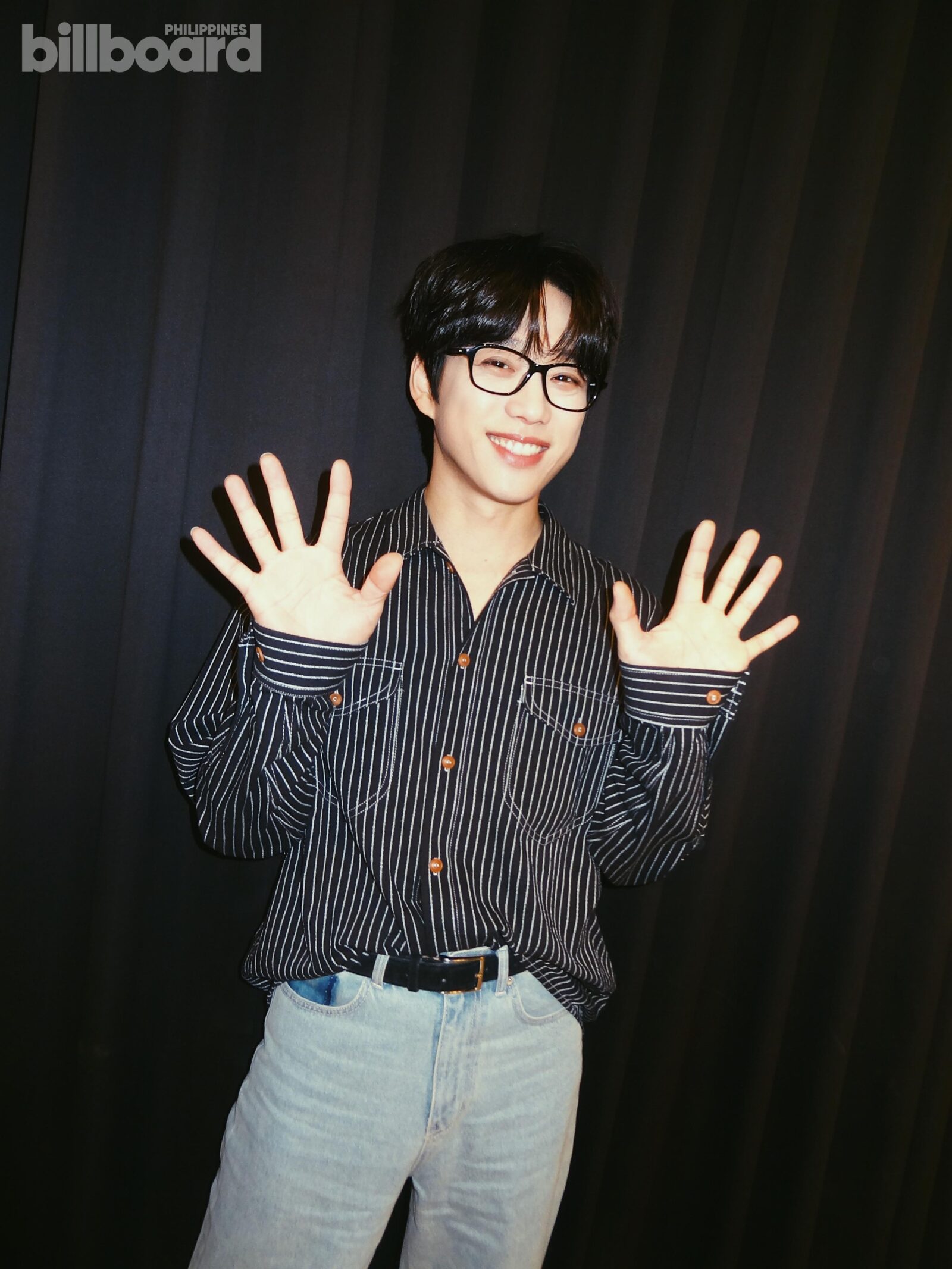In the busy landscape of Korean indie-pop, only a few names resonate with the same amount of depth and longevity on the scene as 10CM.
With a career spanning over 15 years, 10CM (born Kwon Jung-Yoel) and his music continue to carve their own niche –– weaving through the fabric of both mainstream and alternative scenes with an effortless charm. Beyond merely occupying space in the industry, 10CM’s sonic journey has been marked by an unwavering relevance, cementing his status as a stalwart of innovation and ingenuity. Yet, perhaps what truly distinguishes the singer-songwriter is not just his impressive solo endeavors, but his surprisingly strong hold on Korean entertainment –– crafting soundtracks and theme songs for numerous beloved K-dramas, with each melody etching itself into the collective memory of audiences worldwide.
In an exclusive interview with Billboard Philippines, the beloved Korean sensation opens up about his unique creative process, his luck & experiences working on several popular K-dramas, alongside why he believes understanding your audience serves as one of the most important aspects of making music.

Photographed by Gabriel Saulog
Billboard Philippines: Having debuted in 2010, how would you describe your experience of working and being in the Korean music industry for 15 years?
10CM: I’m always thankful for what I do. I’ve done a lot of things, but I’m proud of what I do. First of all, I’m very thankful for the support of my fans. Because of that, I’ve been in the showbiz industry for 15 years. And I’m still doing what I’m doing now in my career. And I’m also very proud because I’m doing what I’m doing. A lot has happened, but at least I’m still here.
Of course. And I heard that recently, earlier this February, you had two sold-out shows in Korea with quite a massive crowd which shows just how far your music reaches with your audience. How do you feel about that, as well as with the direction of your music over time?
In Korea, [the SK Olympic Handball Stadium] is one of the most meaningful concert venues. I’ve done a lot of great performances, so of course the place is very memorable because not all the artists get to perform there for their concert, which makes me very thankful. Then for my direction, I’m also very grateful because I’m making songs and other people are listening to my songs, so it continues to impress me continuously.
Oh, I’m so glad to hear that. So how would you say your creative process and sound have evolved from the time that you released your first record, 1.0, to your latest digital single, 5.6 [Late Night Walk]?
Well, I think it’s because of the acoustic music. Hmm, what else should I say? (laughs) I tried to focus on making music that can satisfy my needs and that’s how I came to this point. First of all, because it’s acoustic, people are not used to the acoustic genre yet. But in my intentions, I want to be able to clarify what the acoustic identity is. So right now, it’s nice to see that a lot of people are waiting for my songs, so I want to do the songs that they are waiting for.
You also performed a lot of soundtracks from popular K-dramas such as Crash Landing on You, Hotel de Luna, and of the recently released Queen of Tears. What makes you choose to create songs for all these popular K-dramas?
Fortunately, I was lucky enough to participate in a lot of popular K-dramas. I guess I’m so lucky because almost all of the theme songs for the K-dramas I sing for end up becoming popular. Yet at the same time, I also like the songs that really suit me. I choose the song based on whether the song will suit me when I sing it, or whether I feel that I can contribute to the K-drama. There are a lot of songs that I loved doing, but this time, it was really that of Hotel De Luna that resonated with me.
Do you have any favorite moments or anecdotes working on the soundtracks for these K-dramas? And which one would you say is your favorite one that you’ve worked on so far?
First of all, I can’t forget the recent ones, such as the one I worked on for Queen of Tears. But if I’m being honest, I would say I’m more attached to songs that are less loved than others.
For example, there’s this K-drama that’s famous in Korea, but perhaps it isn’t so well known here in the Philippines. It’s called The Remaining Ten Years, Of course, it’s a loved drama, but my song didn’t hit it as big that much. I’m also very attached to the song another song that I have in the works, and though it hasn’t been released yet, I believe it’s a lovely follow-up to all the songs that I’ve done.

Photographed by Gabriel Saulog
Coming from the acoustic and K-Indie pop genre, would you say that there are any particular techniques or instruments that you often incorporate into your music that remain your signature as an artist?
First of all, I can’t say that I have a special technique.
It’s not really a special technique, [but] it’s just that there are fewer and fewer things that I can incorporate into my music. So rather than using MIDI or other cold musical instruments, I think it’s more like a technique to record everything with band sounds. I haven’t used it for about 2 years but still, when I see that the sound is mentioned, I can say that it is a signature instrument of 10CM.
With the use of an instrument such as that, what role do you believe your music plays in enhancing the viewer’s emotional experience in a K-drama?
If I were to give you a TMI, and my voice is a bit unique, so I didn’t work hard on the drama OST for a long time. I wasn’t active for a while because I thought it didn’t fit. When my voice comes out in a drama, I thought it would break the flow of the audience’s emotions. But since Hotel Del Luna, I’ve been working hard and doing my best since then.
To be honest, I didn’t watch all the OSTs I was in, so I didn’t know if my songs really fit the popular K-dramas. But I’m thinking that since my voice is a bit different –– I’m thinking that it might not fit the K-dramas. Because in the scenes where we [and the audience] are excited, I sometimes think that my voice might not fit there. But after Hotel Del Luna, apparently, a lot of people were looking forward to me. And a lot of people were saying that it’s good and that it suits me. So I was a bit aggressive there and then I started doing other OSTs.
With all the OSTs you’ve done in your career, how do you think it affects both the listeners and viewers who get to hear the songs you’ve performed for these K-dramas?
I wouldn’t say I have a whole lot of OSTs in my career as of now, but I can tell you that when I’m recording it’s a case-by-case thing. The process often differs with every drama that I work on, sometimes there are songs that I participate in before the drama is delivered. Sometimes, the writer [of the show] gives me a synopsis of what the premise is, so I read it because I find ways on how it can suit me and help me while I record my performance. So if it suits me well, I really do try to give my all in the song.
How does this differ from your personal albums?
First of all, I try to tell the story I want to hear even though I’m not necessarily aware of it. I try to approach the process quite comfortably and fresh –– but it’s hard. I think about that a lot when I work. Unlike the beginning of the 10CM project when I was just putting out whatever I wanted to, many people are now waiting for me and are looking forward to my songs, so there are a lot of complicated thoughts.
There are two ways. First, I think –– what do people want to hear from 10CM? Second, I realize that people don’t know that this is the sound that they want to hear, but they unconsciously know that this is what they’d like.
I’m glad to hear that. So with that, what are the lessons that you’ve learned from your expansive journey in the industry; and how have they shaped your approach when it comes to composing your songs and discography?
I have learned a lot of lessons through the mirror, reflecting on my musical journey. I learned that it’s more important to be satisfied with what your audiences hear than to be satisfied with what you hear.
That’s a very interesting perspective, but why not make music for yourself?
Many people who make music are the ones who prioritize their own satisfaction. I was like that too before. But as I continued to work, I realized that while self-expression is important, there’s something more significant than that. It’s important that there are people who listen to me and that I can make music that really hits home and resonates deeply with them. I’m not saying that it’s not important to me, but it’s something that goes beyond me and is important to all of us.
What would you say are the songs of yours that you’d like for more Filipinos to hear? And to you know, delve deeper into you and your music even further.
Well, I want them to listen to different kinds of songs. Actually, 10CM has a lot of classic concepts. There’s a lot of music in the street. So I want Filipinos to listen to different kinds of songs. Like, fun, sad, sad, sweet, something like that, There’s enough of something in there for everyone. I just hope the Filipinos will enjoy the songs.
Is there a Filipino artist that you would like to collaborate with who would it be?
Of course, TJ Monterde because he’s become my friend. I love his music too!
Yeah, and following your appearance at his concert that seems like a perfect fit. Is there anyone else aside from TJ?
Hmmm, I’d probably say Zack. Zack Tabudlo.

Photographed by Gabriel Saulog
10CM will be returning to Manila this August 31, 2024, for the Philippine stop of his 10CM ASIA TOUR 10CM CLOSER TO YOU at the New Frontier Theater. As we anticipate his highly anticipated return to the country, listen to his latest single “5.6 [Late Night Walk]” below:
